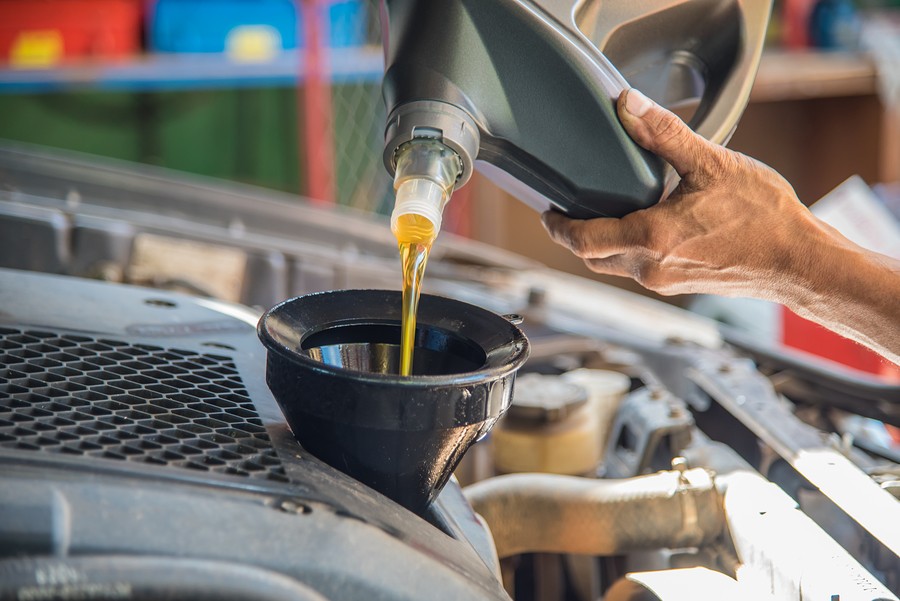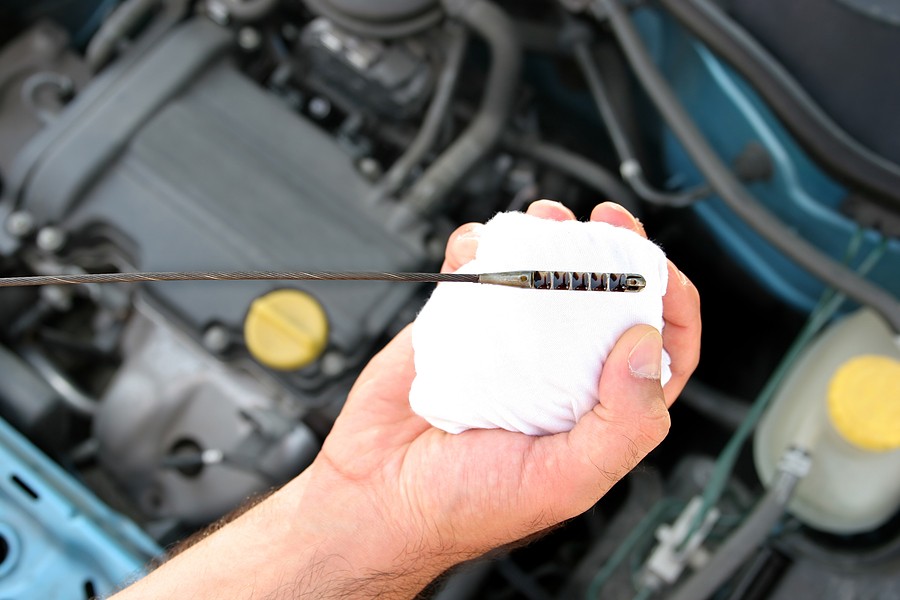If you're wondering, should you change the oil when the engine is hot or cold, it’s better to change your motor oil when it's cold because all the oil will be back in the sump, and working with the hot engine can be extremely dangerous.
Your motor oil is one of the most critical fluids you have to keep up with inside your engine. It's responsible for preventing engine overheating due to internal friction.
As a driver, you must maintain the required amount of oil and change it when necessary and when it breaks down.
Many drivers are comfortable changing their oil so they can save on labor costs and trips to the mechanic shop. However, many of these drivers might deal with simple mistakes that could cost them a lot of money on repair.
Therefore, you must understand the right procedure for changing from motor oil. One of the very common mistakes you should avoid is ignoring the engine temperature when performing oil changes.
In this article, we'll help you answer the question, should you change the oil when the engine is hot or cold?

What is the engine oil, and why is it important?
Before we dig into details about the question, should you change the oil when the engine is hot or cold, we must get a general understanding of the purpose of this oil in your engine.
The oil is responsible for preventing any excess heat typically generated from the internal moving components inside your engine. These components can grind against each other, causing friction and releasing lots of heat which could kill your engine.
Therefore, automotive experts' manufacturers put this multiple oil to lubricate the internal components and prevent friction and overheating.
Every vehicle requires a specific amount and type of motor oil that you have to keep up with. Ignoring and failing to maintain the required oil will damage the engine and cost you thousands of dollars in repair.
Aside from maintaining the required quantity, you also need to maintain the quality of the oil, and that's why you have to have a list between now and then and according to what's mentioned in your vehicle's owner's manual.
Over time, the oil breaks down and requires change because it will not have the same capability and characteristics as the engine and prevent overheating. If you did not change the module oil, your vehicle would run as it doesn't have any oil, and therefore, you will again start dealing with overheating problems.

Should you change the oil when the engine is hot or cold?
If you're planning to change your oil self to save on labor and save yourself time, it is a great idea, but you have to do it right and prevent any mistakes that could cost you thousands of dollars.
One of the very common questions that we receive from our readers is: “should you change the oil when the engine is hot or cold?”
While many experts mentioned that when your engine is hot, it is much easier to change the oil because the oil will be thinner, and you'll be able to do it faster, that's not always the best scenario and the most important recommendation.
Or some other experts who have a different opinion and recommend changing your motor following his colds because all the oil will be drained back with some, making it easier for you to drain it out and replace it.
Also, working with a very hot engine can be extremely dangerous, especially if you touch the hot components or check the motor oil.
There are many inexperienced drivers who might even mistake the location for checking the motor oil versus the coolant, which can be extremely dangerous.
If you would like to select the perfect timing for changing your motor oil, you might want to let your engine cool down to a point where you can touch the different components and where your oil is still warm enough to drain it easily without the risk of burns. However, you have to keep in mind that some of the all might be still in the different pathways and it might be a little bit longer to drain old oil as you're waiting for it to drain.

How often should you change the motor oil?
It's all depending. Many factors go into the equation to determine how often you should change your motor oil. For example, your manufacturer will explain how often you should change your motor oil.
However, depending on what type of oil you decide to go with, you might not need to change it much. In other words, if you're just relying on traditional conventional oil, you might want to change it once every 5000 miles, if not 3000 miles, in some instances.
However, if you decide to go with full synthetic oil, you might not need to change the motor oil after 15,000 miles!
Remember that going with synthetic oil means more expensive oils, which means that your initial cost will be much higher than conventional oil. Still, if you think about it long term, you'll see that you're saving a lot, especially in your time and effort.
Should I change the oil myself or leave it to professionals?
Changing the motor oil is not very complicated; if you've done it a couple of times, you should be an expert now. However, you can learn it easily and follow some recommendations from YouTube videos and other DIY articles.
However, some vehicles have very hard access to the locations where you can change the oil and there are some mistakes that you might introduce as you're changing your motor oil, especially if this is the first time, you're doing it.
Suppose you're driving a luxury car and don't want to cause any damage. In that case, it's better that you leave it to professionals because oil changes will not cost you a lot. If you think about the different consequences you will deal with versus the amount of money you have to pay now, you better go with professionals.

What are the different types of motor oil?
In the world of engine oil, there are many types of motor oil that you might come across, but here are the big ones:
1. Conventional oil
Conventional oil is the cheapest and lowest quality motor oil you will encounter in the automotive market. However, it provides enough characteristics to help you keep up with your vehicle and run it without any problems.
However, your manufacturer might ask for a different oil type, so you must follow the recommendations so you don't have problems with your engine.
The nice thing about conventional oil is that everybody can afford it because it's not very expensive. However, you got to replace it more frequently than the other types of oil because it breaks down much faster.
2. Synthetic oil
Synthetic oil is the highest quality and top motor oil you will see in the market. It provides you with great characteristics for a very long time and the best part about it is that you don't have to change it frequently.
Some people might not need to change the motor oil until one whole year.
However, not every vehicle is compatible with synthetic oil, so you have to check with your manufacturer and confirm that you're not introducing a new oil that your vehicle is not ready for. In addition, there are some instances where synthetic oil might cause damage to weak engines, especially in all vehicles.
Therefore, to stay on the safe side, review your vehicle's owner's manual and do not make this switch decision yourself without checking with your mechanic.
3. Synthetic blend oil
Since conventional oil does not provide you with as good characteristics as synthetic oil, I don't want experts to think of combining both conventional and synthetic oil and creating what's called synthetic blend oil.
This oil provides additional picture sticks, so it's not as expensive as synthetic oil. Thus, it is a more affordable option for those who cannot afford synthetic oil.
It provides great benefits that allow you to change motor oil at wider and larger frequencies than conventional oil.
4. High mileage oil
Finally, the high mileage oil is designed specifically for vehicles with 75,000 or more miles, and if you have an old car or a car with a lot of mileage, this oil could be a great idea that helps your engine.
Many companies claim that this motor oil protects the engine and delays major problems you might encounter when your vehicle is getting older. However, after your vehicle hits 100, By following a simple trick and switching your motor oil to a high mileage oil, you can benefit a lot, and you will not deal with some unnecessary repairs.

What about oil additives?
Keep in mind that's why these are the most common types of motor oils; some companies create some specific additives which provide you with additional benefits to protect your engine. So, for example, some oil companies will provide you with things to enhance the engine's performance and prevent engine locking, which can be a major problem for many older engines.
However, all these additives might have negative consequences, so you must read about them before switching to any new oil for your vehicle. Again, your mechanics should be a great resource to help you decide on a better oil for your vehicle.
When should I check my engine oil?
You should keep a good habit of checking your engine oil frequently. You don't want to wait till problems happen until you decide to check your motor oil.
You want to ensure that the oil is always at the optimum level. However, you might start dealing with some symptoms that could indicate an issue with your motor oil. For example, if you realize that your engine is overheating continuously, there could be a strong sign that you're probably running out of oil or having another issue.
Therefore, keep an eye on your vehicle's performance and monitor it closely to ensure that you're not causing any trouble just because you are missing the right amount of oil or the perfect time for oil changes.

Final thoughts
Changing your motor oil is one of the most important regular maintenance that you must keep up with. Some people are comfortable changing their own oil, which is a great idea to save on labor costs.
If you're planning to change your motor oil yourself, you got to answer the question, should you change the oil when the engine is hot or cold?
Based on what we discussed in this article, recommendations are that you should deal with the engine cold, so you don't have risks of burns and hot components. However, you still want to have the oil warm enough, so it drains faster, especially when it's thinner as it warms up.
If you noted that your vehicle has a major problem and you will feel that you need to change your motor oil more frequently, it could be a problem with the internal components like the engine. If that's the case, it could be a perfect time to sell your vehicle and use its value to buy a better car!
Are you looking for someone to pick up your car, considering the major problems with the engine?! Why don't you reach out to Cash Cars Buyer!
Cash Cars Buyer is one of the top-rated car removal companies in the nation that guarantees to pay you the top dollars and provide you with free towing despite your living location around the United States.
Our process is very straightforward and doesn't take more than a couple of days to get your car removed safely and for the most money.
All it takes you is to:
- Describe your car's type and condition
- Receive our instant free quote
- Accept the quote
- Get your car removed and receive your cash payment on the spot!
To learn more about our process and our team, you can reach out to us by calling us at (866) 924-4608 or by visiting our home page click on the free instant online offer.



